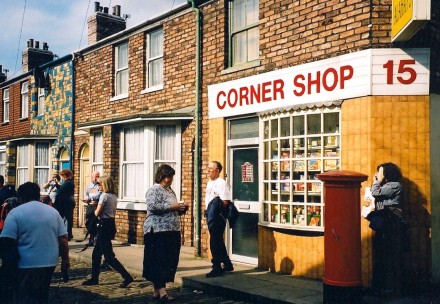
Business people are fed up with the Tories. The recent attack by the British Chambers of Commerce came as no surprise. Business men and women I talk to tell me they are becoming increasingly worried about the direction the British economy is taking after seven years with the Conservatives in charge – and they found much to like in Labour’s recent election manifesto.
This gives us a unique opportunity to show we are the natural party of business. Our campaign to do just that has won the backing of Jeremy Corbyn, John McDonnell and Rebecca Long-Bailey, among many others.
It’s a national campaign, but in order to give it a local cutting edge we have developed a proposal, along with John McDonnell and Rebecca Long-Bailey, for every constituency Labour Party to appoint a business liaison officer (BuLO) to work alongside existing trade union liaison officers.
John McDonnell, the shadow chancellor, has said: “We are the party of real wealth creators speaking up for small businesses, entrepreneurs and workers. Appointing business liaison officers will help us work with those businesses that have our shared Labour values at their core in promoting our vision for a fairer society.”
Rebecca Long-Bailey, shadow business secretary, has said: “This new initiative will help us to have a conversation with the business community about how we can create jobs and prosperity for all.”
The BuLO initiative doesn’t need a rule change. CLPs are free to go ahead and make the appointment now. Many have already done so, and Labour Business will support them.
It builds on a key section in Labour’s recent manifesto which captured the values and aspirations of many in the business community, stating: “Labour understands that wealth creation is a collective endeavour – between workers, entrepreneurs, investors, and government. Each contributes and each must share fairly in the rewards.”
I believe Labour can convincingly claim to be “the natural party of business” for two key reasons.
First, we are the country’s largest political party, with more than 500,000 members, and we almost certainly have more active business people in our ranks than any other political party in Britain. Our members own or run small businesses, work in medium- and large-sized companies, and hold senior management positions throughout the business community. Our elected mayors and councillors control huge business development budgets.
Unlike the Labour Party, the Tories only represent a tiny slice of business. Academic research shows that just 50 key ”donor groups” account for half of donations to the party. Their top 15 donors gave a third of the total. One family (the Bamfords) came up with £4m.
In the run up to the last election, the Tories got more than £19m from two dozen wealthy hedge fund managers. These people are not remotely representative of British business, but they exert a massive influence on the Tories. Is it any wonder that Tory business policies favour the few businesses and not the many?
The second reason for claiming Labour as the natural party of business is that we have the right policies to create the conditions for business to flourish.
Business people are concerned at the Tories’ failure to tackle some of the fundamental underlying problems in the British economy. These include: the productivity gap – we lag behind Germany and the USA by 30 per cent in what is produced by the average worker; the fact that we don’t pay our way in the world – we have a persistent trade deficit of around £100bn a year with more money flowing out for imports than we earn from our exports; real wages falling behind inflation; dangerously high levels of household debt; and above all, our failure to invest enough in the infrastructure and skills that are vital for future job creation.
To re-position Labour as the natural party of business, we need to campaign nationally and locally to nail the Two Big Lies in British politics.
Big Lie number one, peddled by George Osborne, with support from Nick Clegg, is that the Labour government – rather than US banks — caused the crash of 2007/8.
Big Lie number two is the Tory claim to have created a “strong and stable” economy. Their claim rests solely on the jobs numbers, but in a genuinely strong economy we would see rising living standards and workers would have high-skilled, well-paid jobs. In a shaky economy, millions of the new jobs that have been created under the Tories are low-paid and insecure.
A strong economy would provide proper funding for vital public services including health and education. That is manifestly not true after seven years under Tory chancellors.
By contrast, Labour’s economic and business policies are aimed at creating better jobs and greater shared prosperity through a partnership between government, businesses, trade unions and workers. In a business context, serving “the many and not the few” is more than a slogan: it means tackling inequality and poverty – not just because they offend our values and are a source of many social ills, but also because they undermine economic stability and hold back economic growth. Put simply, people in low-paid, insecure jobs do not buy as many goods and services, and businesses do not prosper.
The business leaders I talk to get this. They understand that their businesses flourish when their workers and customers flourish. A fairer and more equal society goes hand in hand with a more productive and sustainable economy.
Hamish Sandison is chair of Labour business, which was founded by Harold Wilson in 1972. It is one of the 22 socialist societies affiliated to the Labour Party and the only business organisation affiliated to the party.
For more information about appointing a business liaison officer in your CLP click here.




More from LabourList
‘Security in the 21st century means more than just defence’
‘Better the devil you know’: what Gorton and Denton voters say about by-election
‘Unity or division’: Starmer’s message to voters in Gorton and Denton